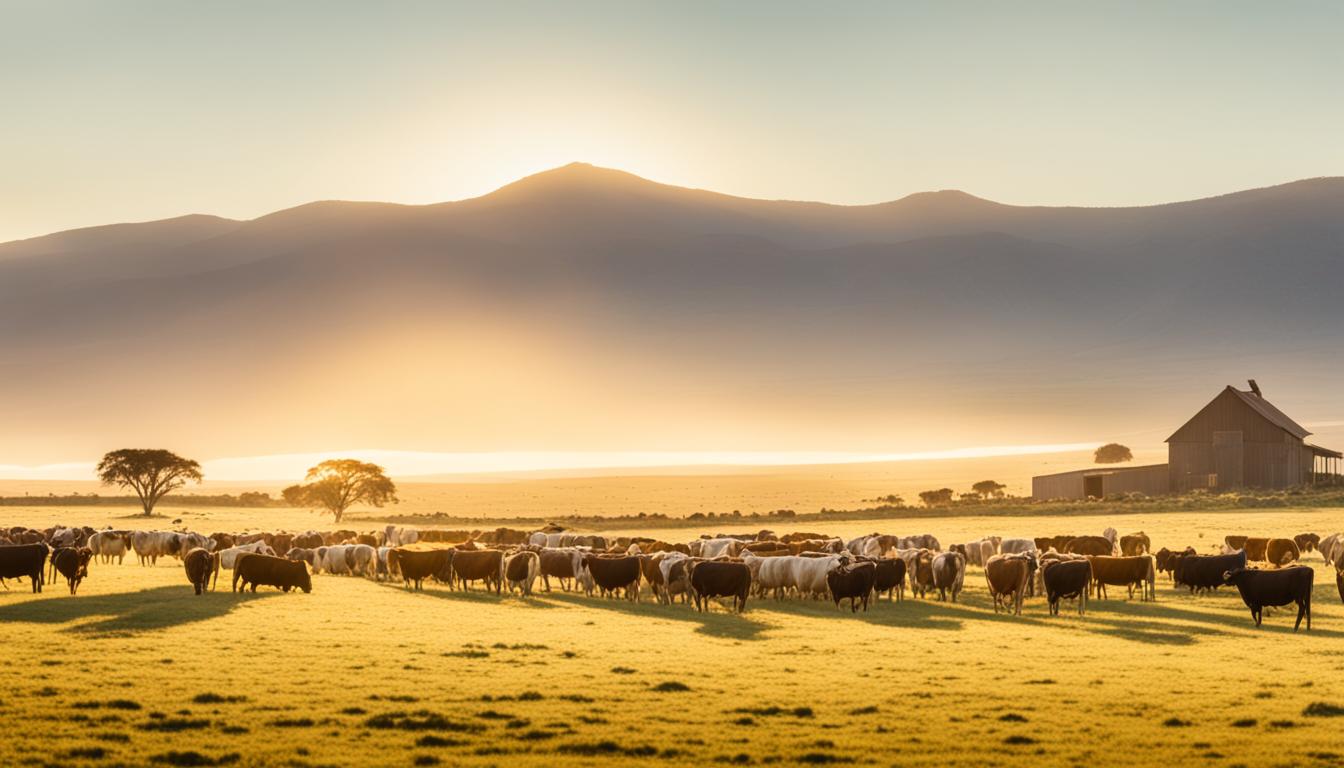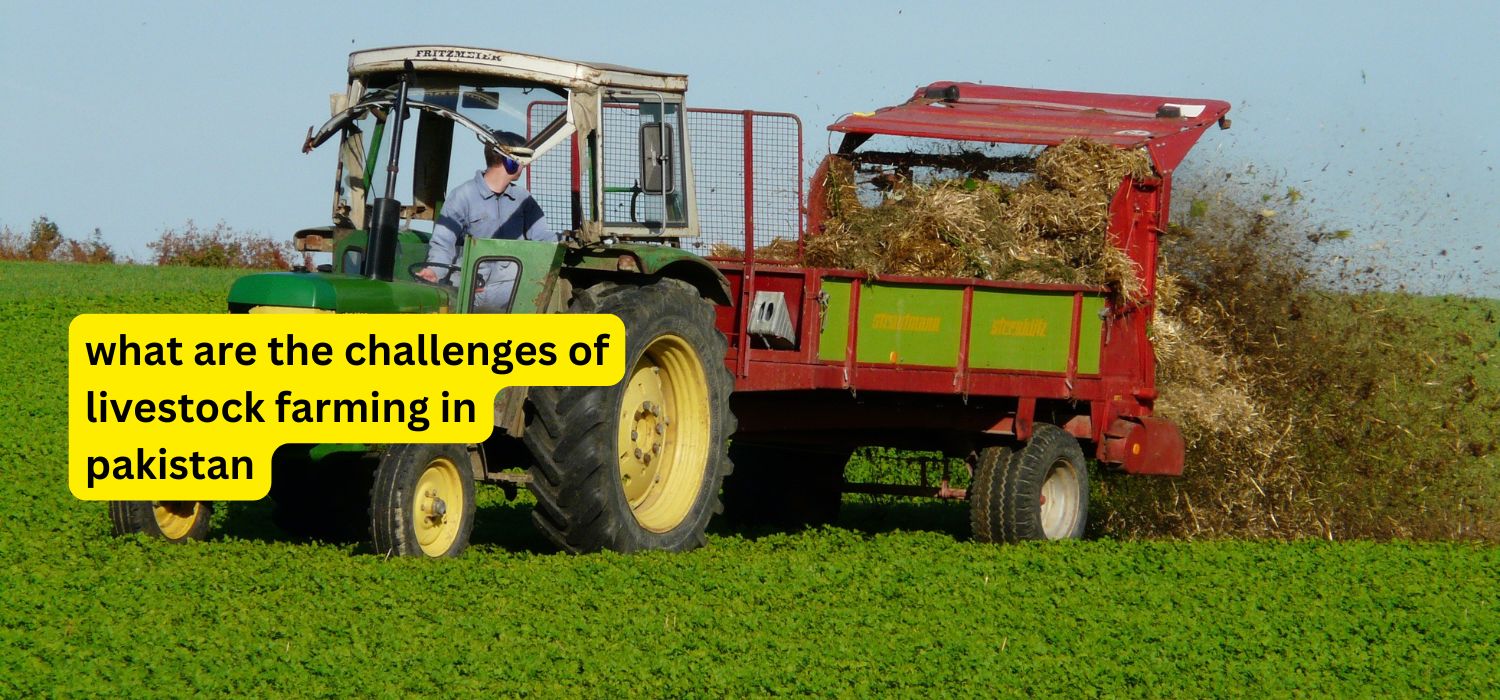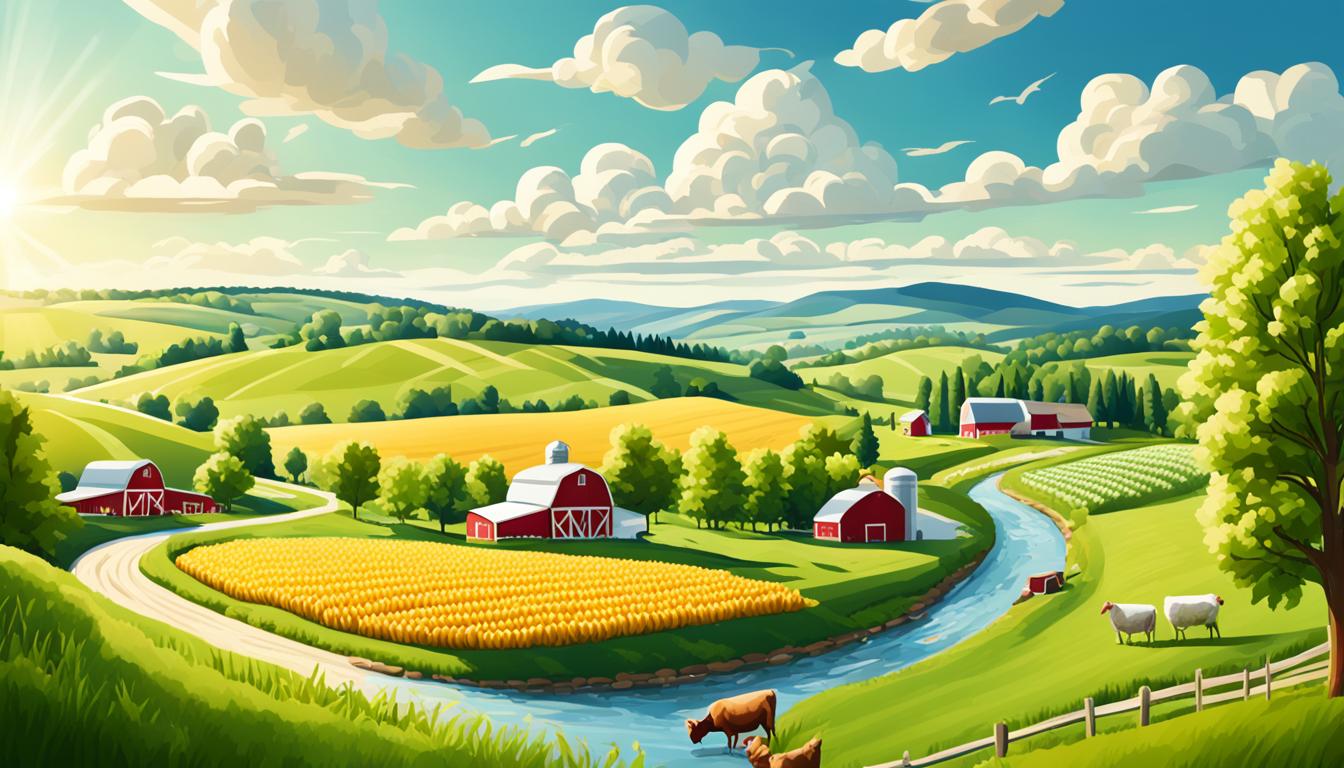Do you want to start a livestock farm in South Africa? This guide will give you all the key info and strategies to make your farm successful. It’s perfect for both experienced farmers and those new to the field. You’ll learn about the great opportunities in livestock farming in this country.
South Africa has the perfect climate and land for many types of livestock farming. This guide will teach you how to start a successful farm. You’ll learn about making a business plan, getting the right funding, and following the rules.
This guide also shares the good and bad things about farming animals. It helps you make smart choices and deal with problems easily. You’ll find out how to pick the best animals and keep them healthy. With this knowledge, you’ll do well in South Africa’s changing farming world.
Explore the World of Livestock Farming in South Africa
South Africa’s livestock farming is diverse and booming, offering great chances for new entrepreneurs. It ranges from big cattle ranches to tough sheep and goat farms. This sector is key to the country’s farm economy. Discover the big opportunities in types of livestock farming in south africa.
Discover the Potential of a Thriving Industry
The need for livestock products is growing, both at home and abroad. This means lots of chances for smart farmers. South Africa is a big player in beef and mutton exports, offering a chance for profit. The country’s strong farm history and support for livestock farming make it a great place for investors and new farmers.
Understand the Benefits and Challenges Involved
Starting in types of livestock farming in south africa has many perks, like steady money and helping feed the nation. But, you’ll face challenges too. Finding good land, meeting rules, and dealing with weather changes are some of them. With good planning and knowing the industry well, you can beat these challenges and do well.
“The future of livestock farming in South Africa is bright, but it requires dedication, innovation, and a willingness to adapt to the ever-changing landscape.”
Types of Livestock Farming in South Africa
South Africa’s diverse landscape and climate are perfect for a thriving livestock farming industry. The country has everything from vast grasslands to arid regions. This variety offers many opportunities for livestock producers. Let’s look at two main types of livestock farming in South Africa.
Cattle Ranching: A Widespread Practice
Cattle ranching is key to South Africa’s livestock farming. The country’s wide open spaces and good climate are ideal for raising beef and dairy cattle. Ranchers in South Africa often run large operations. They use the land and temperatures to raise top-quality livestock.
This type of livestock farming in south africa is big for the country’s agricultural economy.
Sheep and Goat Farming: Hardy and Adaptable
While cattle ranching is big, sheep and goat farming are also vital in South Africa’s livestock industry. These animals do well in dry areas, which are tough for cattle. Farmers raise sheep and goats in these areas. They use the animals’ toughness to graze on tough lands and handle hard conditions.
This form of starting a cattle ranch in south africa fits well with the country’s varied landscapes.
“South Africa’s livestock farming industry is a dynamic and multifaceted sector, offering opportunities for both large-scale cattle ranchers and small-scale sheep and goat producers.”
Developing a Comprehensive Livestock Farming Business Plan
Starting a livestock farming business plan south africa requires a detailed plan. This plan acts as a guide through market analysis, financial forecasts, and operational strategies. It also helps set growth goals.
First, dive deep into the livestock farming industry in South Africa. Find out who your customers are, who you’re up against, and what’s in demand. Make a budget that includes startup costs, ongoing expenses, and how you’ll make money.
- Do a deep market analysis to grasp the industry and know your customers.
- Write down your operational plan, covering your livestock, housing, feeding, and health care needs.
- Make financial forecasts for initial costs, ongoing expenses, and expected earnings.
- Set clear goals for growing and expanding your livestock farming business plan south africa.
“A well-crafted business plan is the foundation for a successful livestock farming venture. It helps you navigate the challenges and capitalize on the opportunities in this dynamic industry.”
Putting effort into a thorough livestock farming business plan south africa sets you up for success. It prepares you for long-term growth and helps you get the funding and resources you need to make your farming dreams come true.
| Key Components of a Livestock Farming Business Plan | Description |
|---|---|
| Market Analysis | Understand the industry, target customers, and competitive landscape. |
| Operations Plan | Outline the details of your livestock selection, housing, feeding, and healthcare. |
| Financial Projections | Prepare a detailed budget, covering startup costs, ongoing expenses, and potential revenue. |
| Growth Objectives | Set clear goals for the expansion and development of your livestock farming business. |
Selecting the Right Livestock Breed for Your Farm
Choosing the right livestock breed is key for any new farmer in South Africa. It’s important to think about several factors to make your farm successful. This decision affects how much you can produce and your farm’s success.
Factors to Consider for Optimal Productivity
When picking breeds, consider your farm’s climate and environment. Breeds that fit well with your local weather and conditions will do better. They will be more productive.
Look at what each breed eats and make sure your land and resources can support them. Some breeds need less food or use local plants well. This is great for farming in South Africa.
It’s also vital to think about how breeds fight off diseases. Some breeds are naturally stronger against common diseases. This means you might spend less on vet care and keep your animals healthier.
| Breed | Climate Adaptability | Feed Requirements | Disease Resistance | Expected Productivity |
|---|---|---|---|---|
| Nguni Cattle | High | Moderate | High | Moderate |
| Dorper Sheep | High | Low | High | High |
| Boer Goat | High | Moderate | High | High |
By looking at these factors and getting advice from experts, you can choose wisely. This will help your farm do well and make money in South Africa.
Land and Infrastructure Requirements for Livestock Farming
Starting a successful livestock farm in South Africa means getting the right land and infrastructure. The land’s suitability and the facilities you have can greatly affect your farm’s success and profits.
Evaluating Your Land Suitability
When picking land for your farm, think about soil quality, water access, and climate. The land must support the needs of your livestock for their health and growth. Look at the terrain, drainage, and grazing areas to see if your land fits your farming plans.
Essential Infrastructure Needs
- Fencing: Strong and well-kept fencing is key to keeping your animals safe and protecting them from predators.
- Barns and Shelters: Give your animals safe and cozy homes, protecting them from the weather and keeping them healthy.
- Feeding Stations: Set up areas for feeding your animals with troughs, hay racks, and water.
- Watering Systems: Make sure your animals always have clean water, using wells, boreholes, or rainwater collection.
- Access Roads: Keep roads on your farm in good shape for moving animals, equipment, and supplies around.
By looking at your land and building the right infrastructure, you can make a great place for your livestock farm. Look for livestock farming land for sale south africa to find the best spot for your business.
Securing Financing for Your Livestock Farming Venture
Starting a successful livestock farm in South Africa needs a strong financial base. There are many ways to get the money you need. We’ll look at government grants and subsidies, and also at loans and investments that can help your farm grow.
Exploring Government Grants and Subsidies
The South African government sees the value of livestock farming and offers grants and subsidies to help it grow. These funds can be a big help for starting or expanding your farm. Make sure to check out the latest programs and see if you qualify to get this support.
Loan Options and Investment Opportunities
There are also loans and investment chances to think about for your farm. Banks, microfinance groups, and agricultural lenders have special loans for farmers. You might also look into working with private investors or equity firms for more money and advice.
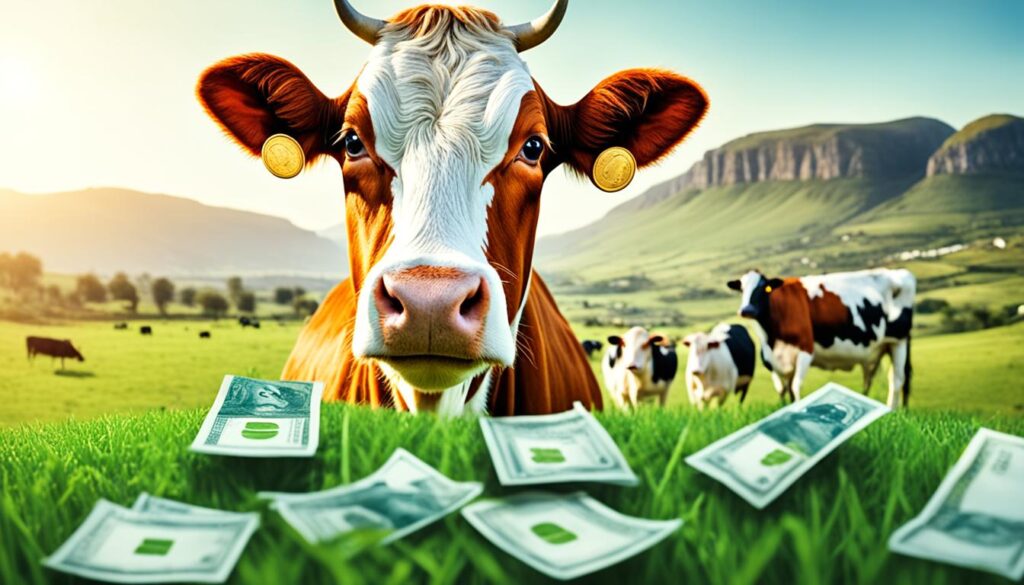
“Getting the right financing is key for a successful livestock farm in South Africa. Look at all your options to find what’s best for your farm.”
By looking into different financing options, you can set your farm up for success. Whether it’s government grants, loans, or investments, having a strong financial base is crucial for your farm to do well.
How to Start Livestock Farming in South Africa
Starting a livestock farm in South Africa is both exciting and rewarding. If you’re looking into cattle, sheep, or goats, this guide will walk you through starting your own farm. It’s a journey full of steps to follow for a successful business.
Step-by-Step Guide to Getting Started
Starting your farm in South Africa means going through some key steps. Let’s look at each one:
- Conduct Market Research: Look into the demand for livestock products in your area. Find out who might buy from you and see who else is in the market.
- Secure Land and Infrastructure: Check if your land is good for farming animals. Make sure you have the right fences, water, and shelters.
- Obtain Necessary Permits and Licenses: Learn about the rules for farming animals in South Africa. Get any permits or licenses you need.
- Source High-Quality Livestock: Pick the right breed of animals for your farm. Think about the climate, what they eat, and what people want to buy.
- Establish Your Farm Operations: Plan how you’ll take care of your animals. This includes feeding, health care, and breeding. Think about who will work on the farm and what tools you’ll need.
- Implement a Marketing Strategy: Figure out the best ways to sell your products. This could be to consumers, wholesalers, or at local markets.
By taking these steps, you’re on your way to a successful farm in South Africa. Remember, success comes from careful planning, making smart choices, and caring for your animals and the environment.
“Livestock farming in South Africa is not just a business – it’s a way of life that connects us to the land and the animals that sustain us.”
Livestock Farming Regulations and Compliance in South Africa
If you dream of becoming a livestock farmer in South Africa, you must know the rules and what you need to follow. It might seem hard, but understanding the laws helps your farm stay legal and keep animals and the environment safe.
Understanding Animal Welfare Laws
In South Africa, farming animals comes with strict rules to protect them. These laws cover things like where animals live, what they eat and drink, how they’re moved, and how they’re killed. Following these laws is a must for any farmer who cares about doing the right thing.
Adhering to Disease Control Protocols
Stopping diseases in animals is very important in South Africa. Farmers must use vaccines, keep sick animals apart, and tell the authorities about any diseases. Not following these rules can lead to big problems for your farm and the whole farming community.
Navigating Environmental Regulations
Farming animals affects the environment, and South Africa has rules to keep it safe. Farmers must take care of waste, use water wisely, and protect nature. Using green farming methods helps you meet the law and helps farming last a long time.
| Regulation | Key Requirements | Potential Penalties |
|---|---|---|
| Animal Welfare Act | Proper housing, feed, and water; humane transportation and slaughter | Fines, license revocation, and/or imprisonment |
| Livestock Diseases Act | Mandatory vaccinations, disease reporting, and quarantine procedures | Fines, culling of infected animals, and/or farm closure |
| Environmental Conservation Act | Sustainable waste management, water usage, and ecosystem protection | Fines, environmental rehabilitation orders, and/or business closure |
Learning about the rules for farming animals in South Africa sets you up for success. It makes sure your farm is legal and ethical.
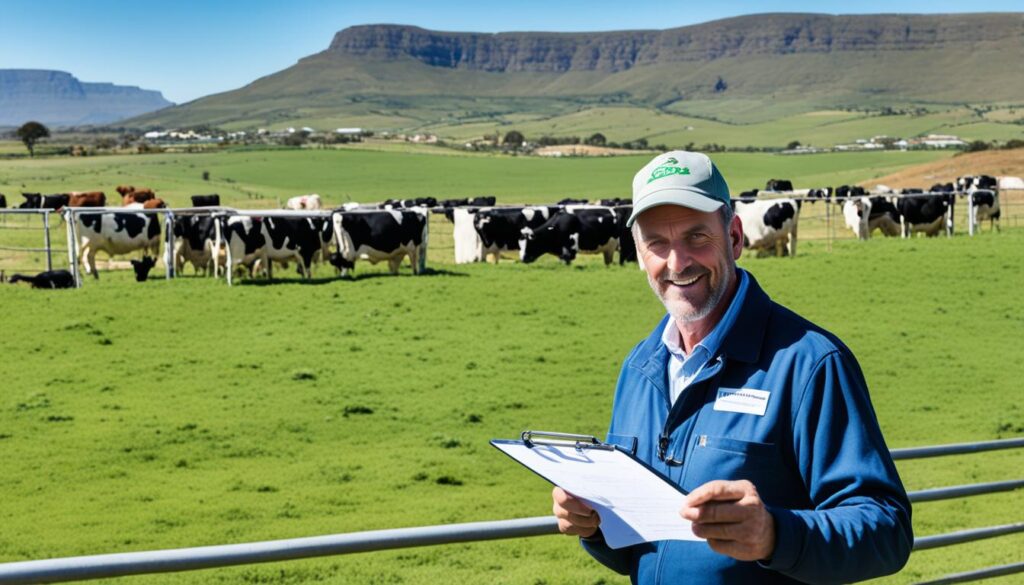
Animal Health and Welfare in Livestock Farming
Keeping animals healthy and happy is key to a successful farm. Good herd management means giving them the right food, preventing diseases, and caring for their health. This way, your animals will do well, and your farm will stay productive.
Promoting Healthy and Productive Herds
Here are some ways to keep your livestock in top shape:
- Give them a balanced diet that fits their needs.
- Use a disease prevention plan with shots and parasite control.
- Work closely with a vet for health advice and care.
- Watch your animals for sickness and fix problems fast.
- Make sure they have good homes, shelter, and living conditions.
Putting animals first makes your farm better and more lasting. Think about joining livestock farming courses south africa. They keep you updated on the best ways to farm and follow the rules.
| Best Practices for Healthy Herds | Benefits |
|---|---|
| Proper Nutrition | Supports growth, reproduction, and overall health |
| Disease Prevention | Reduces the risk of disease outbreaks and improves herd productivity |
| Veterinary Care | Ensures timely diagnosis and treatment of health issues |
| Stress Reduction | Promotes overall well-being and enhances animal welfare |
Looking after animal health and welfare makes your livestock farming better and more lasting. Think about joining livestock farming courses south africa. They keep you in the loop with the latest farming tips and rules.
“Healthy animals lead to a healthy farm, and a healthy farm leads to a successful and sustainable livestock business.”
Marketing and Sales Strategies for Livestock Farmers
As a livestock farmer in South Africa, it’s key to have strong marketing and sales plans. This helps your business do well. By reaching out to local and global markets, you can make more money from your farm.
Reaching Local and Global Customers
First, build good relationships with local buyers like butchers and restaurants. Join farmers markets and events to meet your customers directly. Use online tools like websites and social media to reach more people and show off your products.
Think about selling to markets outside South Africa too. Look into the rules for exporting livestock and find international buyers who can help you with trade.
Value-Added Offerings
- Look into adding value to your products, like making meat cuts or sausages. This can make your products stand out and increase prices.
- Emphasize what makes your livestock special, like how they adapt well or have a rich history. This can attract customers who care about quality and heritage.
- Create a strong brand that shows off the quality and story of your farm.
| Marketing Channel | Potential Benefits | Considerations |
|---|---|---|
| Local Farmers Markets | Direct interaction with customers, higher profit margins | Logistics, competition, seasonality |
| E-commerce Platforms | Expanded reach, online visibility, potential for international sales | Platform fees, online marketing, customer service |
| Export Markets | Tap into new revenue streams, diversify customer base | Regulatory requirements, logistics, cultural differences |
With a solid marketing and sales plan, you can connect with customers everywhere. This will help your livestock farm do well for a long time.
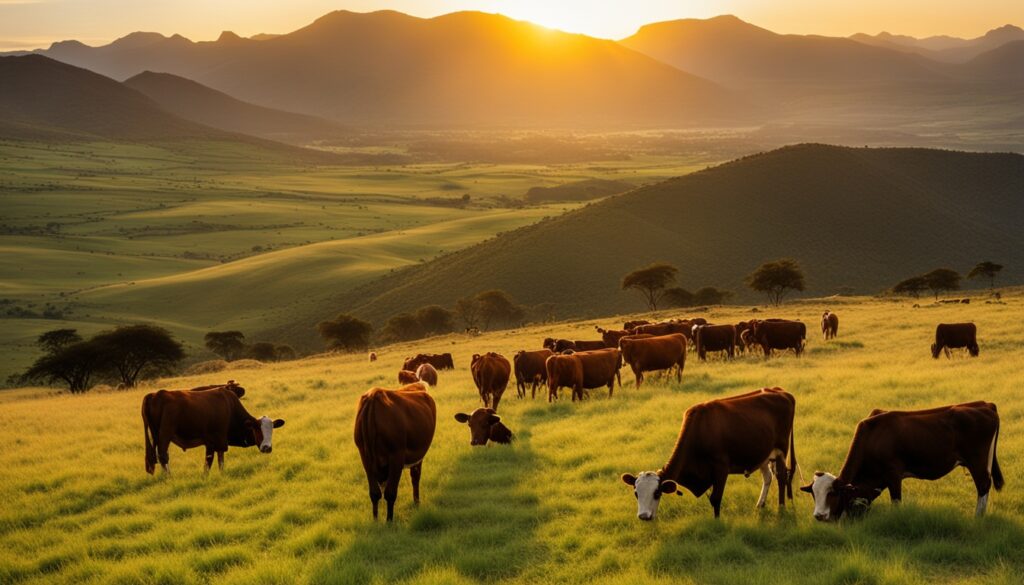
Sustainable Livestock Farming Practices
As a livestock farmer in South Africa, it’s key to use sustainable methods for your farm’s future and the planet. By cutting down on your environmental impact and making your farm more eco-friendly, you help your business and the planet. This approach makes your farm more sustainable for the future.
Minimizing Environmental Impact
It’s vital to reduce waste, save water, and use resources wisely in sustainable farming. Look for ways to reuse your farm’s byproducts, like manure, to cut down on waste and make useful fertilizers. Use water-saving tech and methods, like collecting rainwater and smart irrigation, to save this vital resource.
Implementing Eco-Friendly Techniques
- Invest in renewable energy like solar panels or wind turbines to power your farm with clean energy.
- Try regenerative grazing to improve soil health, increase biodiversity, and store carbon, helping your animals and the environment.
- Choose eco-friendly farming tools in South Africa to boost efficiency and lower your carbon footprint.
By going for sustainable farming, you lessen your farm’s environmental harm and lead in the industry. Keep innovating and sticking to green farming to make your farm last long. This helps the livestock farming sector in South Africa become more sustainable for the future.
“Sustainable farming is not just about profit, it’s about preserving the land for future generations.”
Continuing Education and Professional Development
As a livestock farmer in South Africa, it’s key to keep learning to stay ahead. You need to know the latest trends, tech, and best ways to farm. Going to workshops, conferences, and training helps you grow your skills and keep your farm leading the way.
Staying Up-to-Date with Industry Trends
Joining groups like the Livestock Farmer’s Association of South Africa gives you new insights. They have events and workshops where you can meet experts and other farmers. Learning about new rules, market changes, and tech helps you make smart choices for your farm.
Looking into courses on livestock farming in South Africa can also help. These courses teach you about the best ways to farm, manage your farm well, and use new ideas for farming in a green way. By always learning more, you can tackle challenges, make your farm more productive, and grab new chances in the changing livestock industry.
